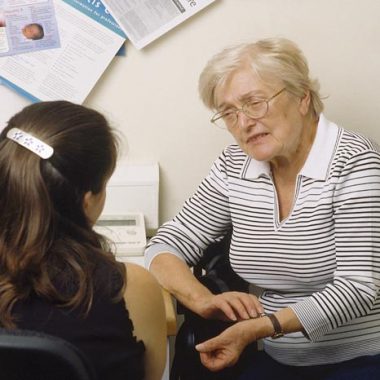Pre-seasonal subcutaneous immunotherapy effectively reduces symptoms of hay fever in older patients, researchers claim.
Findings from a three-year double-blinded placebo-controlled study in hay fever sufferers aged between 65 and 75 found that pre-seasonal subcutaneous immunotherapy elicited an immune response similar to that usually seen in younger patients.
A points system was given to each and the overall efficacy was deduced by subtracting the total use of medication away from the total number of symptoms, and patients in the treatment group saw an overall reduction in symptoms and medication use of 41%.
When medication wasn’t considered, patients that received the immunotherapy saw a drop in their symptoms of 55% during the grass pollen season and did not experience any allergic reactions. Researchers compiled the results by considering participants’ medication use along with specific symptoms – such as sneezing and an itchy nose.
The researchers, from the University of Silesia in Poland, believe the results show immunotherapy is safe for older patients and that age does not affect the efficacy of the treatment.
The study, published in the Annals of Allergy, Asthma & Immunology said: ‘This study showed that subcutaneous immunotherapy to grass pollen allergens resulted in a significant clinical improvement in the active group compared with the placebo group during pollen season. These observations could increase the use of SCIT in the elderly. However, further controlled studies are required to assess this treatment, especially for other allergens.’
But, with the study conducted in Poland, experts warned UK GPs may face a challenge getting access to immunotherapy for patients.
Dr Dermot Ryan, a former GP and current chair of the Primary Care Interest group of the European Academy of Allergy and Clinical Immunology, said: ‘In the UK, immunotherapy would be restricted to use in those who suffered with moderate to severe symptoms despite a trial of adequate medication.
’An allergist would probably have to apply to a CCG on a named patient basis to justify the expense of a three year course of treatment, and that is if a GP even had access to an allergist.
‘There are many more allergists in Poland and other European countries, so access to this treatment modality is easier [in these countries], but GPs [in the UK] are likely to face significant hurdles to obtain immunotherapy for hay fever.’
Pulse October survey
Take our July 2025 survey to potentially win £1.000 worth of tokens













